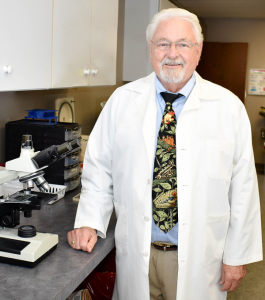
Yes, the raw material Coenzyme Q10 and the manufactured Coenzyme Q10 supplements are documented as safe and well-tolerated. However, the efficacy of the various CoQ10 supplements available on the US market varies considerably. It is wise to purchase a CoQ10 supplement that is supported by scientific documentation. For example, the CoQ10 supplement used in the Q-Symbio study, the KiSel-10 study, and the Gulf War Illness study has been evaluated in randomized controlled clinical trials. There is documented evidence that it is effective.
The nutritional supplement Coenzyme Q10 is non-toxic and without any noteworthy safety concerns [Hathcock; Ikematsu].
- Coenzyme Q10 is very well-tolerated, and it does not cause any notable adverse effects at daily dosages as high as 1200 milligrams per day [Hathcock].
- Studies of healthy individuals and studies of individuals with kidney impairment and liver impairment have not shown any potential for an adverse effect of CoQ10 supplementation on the kidneys or on the liver [Watson; Mabuchi; Farhangi].
- A randomized, double-blind, placebo-controlled study enrolling healthy study participants showed no dose-related changes in hematology, blood biochemistry, and urinalysis [Ikematsu].
- Moreover, plasma CoQ10 concentrations after an 8-month period of withdrawal from CoQ10 supplementation were nearly the same as before the supplementation [Ikematsu].
Importance of CoQ10 nutritional supplements
Note: Coenzyme Q10 is arguably the most important nutritional supplement for healthy individuals above the age of 40. Cellular bio-synthesis of CoQ10 begins to slow down once we are past our 20s and lessens then with increasing age [Kalén].
- CoQ10 in its oxidized form (ubiquinone form) is an essential co-factor in the process of cellular energy production.
- CoQ10 in its reduced form (ubiquinol form) is an important fat-soluble antioxidant, protecting the cells against free radical damage.
- CoQ10 is associated with significant improvement in endothelial function [Gao].
- Coenzyme Q10 is a necessary supplement for patients taking statin medications as the use of statin medications inhibits the bio-synthesis of CoQ10 [Okuyama].
Daily supplemental dosages of CoQ10
- A typical daily nutritional supplement dosage is 100 milligrams per day.
- A typical therapeutic dosage for adjuvant treatment of chronic heart failure is 300 milligrams a day, taken as 3 times 100 milligrams with meals [Mortensen].
- Coenzyme Q10 dosages of 300 milligrams per day have proven efficacy as an adjunctive treatment for chronic heart failure patients and patients with high blood pressure [Mortensen; Rosenfeldt].
No reports of potential overdose of CoQ10
There are no reports in the bio-medical literature of any potential for an acute intoxicating overdose in humans.
- The estimated observed safe level of daily CoQ10 intake for adults is set at 1200 milligrams per day [Hathcock].
- The few adverse effects reported in conjunction with Coenzyme Q10 supplementation – primarily nausea and other minor gastrointestinal effects – have been no more common at 1200 milligrams per day than at 60 milligrams per day [Hathcock].
- 1200 milligrams per day is four times the daily amount of CoQ10 supplementation that resulted in the significantly improved symptoms and survival of chronic heart failure patients [Mortensen] and six times the amount that helped reduce the risk of death from heart disease in healthy senior citizens [Alehagen].
- The highest daily dose of CoQ10 that has been investigated is 3600 milligrams per day for 12 weeks [Hyson].

Dr. William Judy, SIBR Research Institute, has seen a very low incidence of mild adverse effects of Coenzyme Q10 supplementation in his 30-year management of heart failure study. Moreover, it is not clear that the few adverse effects that get reported are caused by the CoQ10 supplement. The same adverse effects occur in patients taking the placebo preparation.
Very low rate of mild adverse effects of CoQ10 supplementation
A 2003 survey of 13 randomized controlled studies of CoQ10 supplementation of heart failure patients as well as of open-label studies in heart failure showed that 200 milligrams of CoQ10 per day for 6–12 months and 100 milligrams per day for up to 6 years resulted in no major side effects. The survey showed a rate of mild adverse effects at less than one-half of one percent [Mortensen].
CoQ10 supplementation and major clinical laboratory evaluations
Baggio 1993:
Researchers reported no significant changes in hematological or bio-chemical parameters associated with CoQ10 supplementation. The Baggio study was a large open-label multi-center study enrolling 2664 heart failure patients.
Watson 1999:
Researchers reported no deterioration in kidney, liver, or hematology variables following CoQ10 supplementation.
CoQ10 supplementation and vital signs
Numerous studies have shown no change in vital signs – pulse rate, respiration rate, and body temperature associated with CoQ10 supplementation [Baggio; Lampertico].
There is some clinical evidence, on the other hand, that CoQ10 supplementation may help to lower high blood pressure [Rosenfeldt].
CoQ10 supplementation and withdrawal
The available data shows that individuals who have taken CoQ10 supplements and who have discontinued the supplementation will have not have lower plasma CoQ10 levels after cessation of the supplementation than they had before they began the supplementation. They can expect to return to the pre-supplementation level after withdrawal from CoQ10 supplementation. [Folkers]. In other words, the withdrawal from CoQ10 supplementation will not affect the body’s own bio-synthesis of Coenzyme Q10.
In the same way, patients who have taken CoQ10 supplements and discontinued taking them will not experience worse symptoms than they had when they started the CoQ10 supplementation. In fact, heart failure patients may expect a clinical relapse after withdrawal from CoQ10 adjuvant treatment with subsequent improvement upon the reinstatement of the CoQ10 adjuvant treatment [Mortensen]. The efficacy of Coenzyme Q10 supplementation is shown in the improvement in symptoms and physical function and in the relapse when the supplementation is discontinued.
Sources
Alehagen, U., Johansson, P., Björnstedt, M., Rosén, A., & Dahlström, U. (2013). Cardiovascular mortality and N-terminal-proBNP reduced after combined selenium and Coenzyme Q10 supplementation: a 5-year prospective randomized double-blind placebo-controlled trial among elderly Swedish citizens. International Journal of Cardiology, 167(5), 1860-1866. doi:10.1016/j.ijcard.2012.04.156
Baggio, E., Gandini, R., Plancher, A.C., Passeri, M., & Carmosino, G. (1994). Italian multicenter study on the safety and efficacy of coenzyme Q10 as adjunctive therapy in heart failure. Mol Aspects Med., 15 Suppl:s287-94.
Berman, M., Erman, A., Ben-Gal, T., Dvir, D., Georghiou, G. P., Stamler, A., … Aravot, D. (2004). Coenzyme Q10 in patients with end-stage heart failure awaiting cardiac transplantation: a randomized, placebo-controlled study. Clinical Cardiology, 27(5), 295–299. Retrieved from http://db14.linccweb.org/login?url=http://search.ebscohost.com/login.aspx?direct=true&db=mnh&AN=15188947&site=ehost-live
Farhangi, M. A., Alipour, B., Jafarvand, E., & Khoshbaten, M. (2014). Oral coenzyme Q10 supplementation in patients with nonalcoholic fatty liver disease: effects on serum vaspin, chemerin, pentraxin 3, insulin resistance and oxidative stress. Archives of Medical Research, 45(7), 589–595. https://doi-org.db14.linccweb.org/10.1016/j.arcmed.2014.11.001
Folkers, K., Moesgaard, S., & Morita, M. (1994). A one-year bioavailability study of coenzyme Q10 with 3 months withdrawal period. Mol Aspects Med., 15 Suppl:s281-5.
Gao, L., Mao, Q., Cao, J., Wang, Y., Zhou, X. & Fan, L. (2012). Effects of coenzyme Q10 on vascular endothelial function in humans: a meta-analysis of randomized controlled trials. Atherosclerosis. 2012 Apr;221(2):311-6. doi: 10.1016/j.atherosclerosis.2011.10.027. Epub 2011 Oct 25.
Hathcock, J.N. & Shao, A. (2006). Risk assessment for Coenzyme Q10 (Ubiquinone). Regul Toxicol Pharmacol., 45(3):282-288.
Hyson, H.C., Kieburtz, K., Shoulson, I., et al. (2010, September). Safety and tolerability of high-dosage coenzyme Q10 in Huntington’s disease and healthy subjects”. Mov. Disord. 25 (12): 1924–8. doi:10.1002/mds.22408.
Ikematsu, H., Nakamura, K., Harashima, S., Fujii, K., & Fukutomi, N. (2006). Safety assessment of Coenzyme Q10 (Kaneka Q10) in healthy subjects: a double-blind, randomized, placebo-controlled trial. Regulatory Toxicology and Pharmacology: RTP, 44(3), 212-218.
Lampertico, M., & Comis, S. (1993). Italian multicenter study on the efficacy and safety of coenzyme Q10 as adjuvant therapy in heart failure. The Clinical Investigator, 71(8 Suppl), S129–S133. Retrieved from http://db14.linccweb.org/login?url=http://search.ebscohost.com/login.aspx?direct=true&db=mnh&AN=8241696&site=ehost-live
Mabuchi, H., Nohara, A., Kobayashi, J., Kawashiri, M., Katsuda, S., Inazu, A., & Koizumi, J. (2007). Effects of CoQ10 supplementation on plasma lipoprotein lipid, CoQ10 and liver and muscle enzyme levels in hypercholesterolemic patients treated with atorvastatin: a randomized double-blind study. Atherosclerosis, 195(2), e182–e189. Retrieved from http://db14.linccweb.org/login?url=http://search.ebscohost.com/login.aspx?direct=true&db=mnh&AN=17681347&site=ehost-live
Mortensen, S.A., Vadhanavikit, S., Baandrup, U. & Folkers, K. (1985). Long-term coenzyme Q10 therapy: a major advance in the management of resistant myocardial failure. Drugs Exp Clin Res., 11(8):581-93.
Mortensen, S. A. (2003). Overview on coenzyme Q10 as adjunctive therapy in chronic heart failure. Rationale, design and end-points of “Q-symbio”–a multinational trial. Biofactors (Oxford, England), 18(1-4), 79-89.
Mortensen, S. A., Rosenfeldt, F., Kumar, A., Dolliner, P., Filipiak, K. J., Pella, D., & Littarru, G. P. (2014). The effect of coenzyme Q10 on morbidity and mortality in chronic heart failure: results from Q-SYMBIO: a randomized double-blind trial. JACC. Heart Failure, 2(6), 641-649.
Rosenfeldt, F.L., Haas, S.J., Krum, H., Hadj, A., Ng, K., Leong, J.Y. & Watts, G.F. (2007). Coenzyme Q10 in the treatment of hypertension: a meta-analysis of the clinical trials. J Hum Hypertens., 21(4):297-306. Epub 2007 Feb 8.
Watson, J.P., Jones, D.E., James, O.F., Cann, P.A. & Bramble, M.G. (1999). Case report: oral antioxidant therapy for the treatment of primary biliary cirrhosis: a pilot study. J Gastroenterol Hepatol, 14(10):1034-40.
The information contained in this review article is not intended as medical advice and should not be used as such.






Leave A Comment